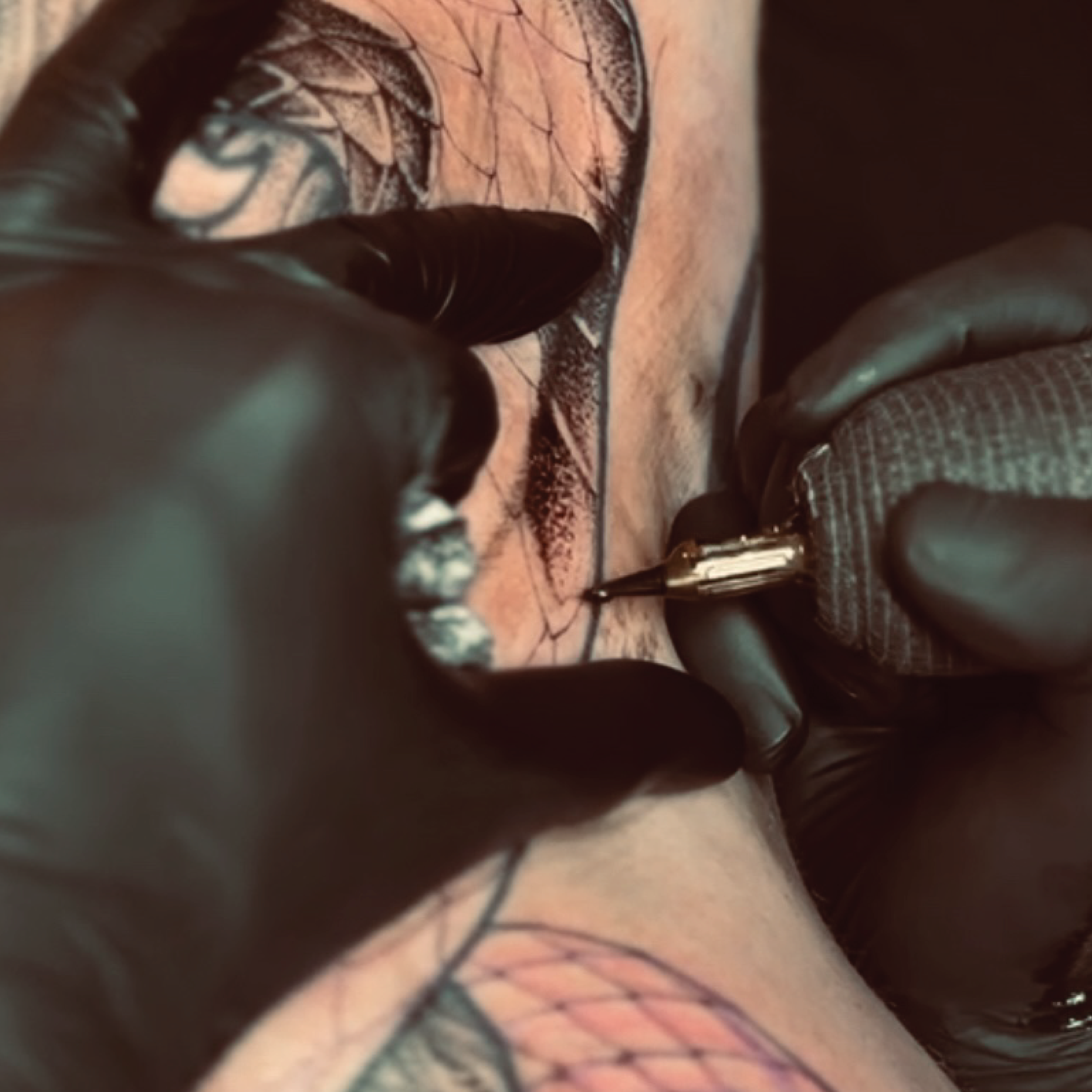
Getting a tattoo can be a tense and exciting experience for anyone. For people with an autoimmune disease (or other conditions that may impact the healing process), it’s a decision that requires even more consideration.
But luckily, having an autoimmune condition does not have to mean giving up on your dream of putting that long-awaited, hard-earned “I love mom” tattoo.
Below you’ll find a short overview of common (auto)immune conditions and how they might affect the tattoo process. You’ll also read what to keep in mind before getting inked and how we at BlackBear Ink take extra steps to keep things safe and comfortable. If you’re not sure about your unique conditions, don’t hesitate to reach out. We’re happy to help!
Having an immune-related condition can be a can of worms, but it shouldn’t keep you from getting a tattoo. However, you’ll want to be a bit more mindful if you have psoriasis or any other skin conditions. Flare-ups can make certain areas more sensitive and can slow down healing, so it’s usually best to wait until your skin has calmed down before booking your session.
Flare-ups can also happen with a condition like Crohn’s or ulcerative colitis. And if you’re on meds like immunosuppressants, there’s a higher risk of infection or slower healing. That’s why it’s super important to check in with your doctor first—especially if you’re taking medication that affects your immune system.
For example, people with heart conditions often take blood thinners, which can cause more bleeding during tattooing. The same goes for folks with hemophilia, where their blood doesn’t clot properly and can cause bruising or excessive bleeding. But please don’t worry—our artists are trained to handle situations like this carefully and calmly.
If you have type 1 or type 2 diabetes, your body might take longer to fight off infections. This is also not a problem, because our artists will go through the aftercare with you step by step and make sure you know exactly how to take care of your tattoo.
Got any allergies? Let us know! Some people react to ingredients in ink or materials like latex. We totally get it and we’ll make sure to use the right stuff for your body. And if you’re a bit nervous about tattoo ink in general, remember: tattooing has been around forever and has never been as safe as it is today. Everything is super regulated, clean, and tested—so you’re in good hands.
1. Be open with your artist. Always let us know if you have a medical condition by filling in the consent form as honest as possible. Even if you’re not sure it’s relevant, mention it. The more we know, the better we can take care of you. You can also message us beforehand if you have any questions.
2. Flare-up happening? No stress—just reschedule your appointment. Your health comes first, and it’s better to wait until symptoms settle down.
3. Doctor approved? If you’re on meds or have a condition that affects healing, we’ll ask if you’ve talked to your doctor. Sometimes we might even need to call them while you’re at the studio—just to be safe.
4. Planning the session. Once you’ve got the green light from your doctor, we’ll figure out the best approach together. If you’ve got a skin issue like eczema or psoriasis, we’ll help you choose a good spot or even do a small test tattoo if needed.
5. Allergies? Please let us know in advance if you have any allergies. Whether it’s to latex, nickel, or anything else. This way we can make sure we’re using the right tools and materials for you.
6. Aftercare matters. We’ll spend extra time going over your aftercare instructions and adjust things as needed. For example, if you’re more prone to infections, we might suggest dry healing instead of using ointments.
If you’ve got a condition that affects your immune system, healing might take a bit longer. Sometimes even twice as long if you’re on certain meds like steroids. Your artist might recommend using balm for a longer period, or cleaning the tattoo more often with antibacterial soap. It really depends on you and your body.
If you notice any of this—call your doctor right away. Not sure if it’s serious? You can always contact your artist, but for anything urgent, don’t wait and get medical help.
Hygiene Protocols
To help minimize risks, at BlackBear Ink we follow strict hygiene guidelines as set out by the Dutch RIVM and LCHV. A few examples:
Want to dive deeper into the regulations all tattoo shops must follow? Check out this link to the RIVM guidelines—for the real (hygiene) nerds among us.
Still unsure? We’re happy to schedule a consultation before your appointment, so you and your artist can feel completely confident going into your tattoo journey together.
So don’t hesitate—go ahead and book that “I love mom” tattoo. She totally deserves it!
share